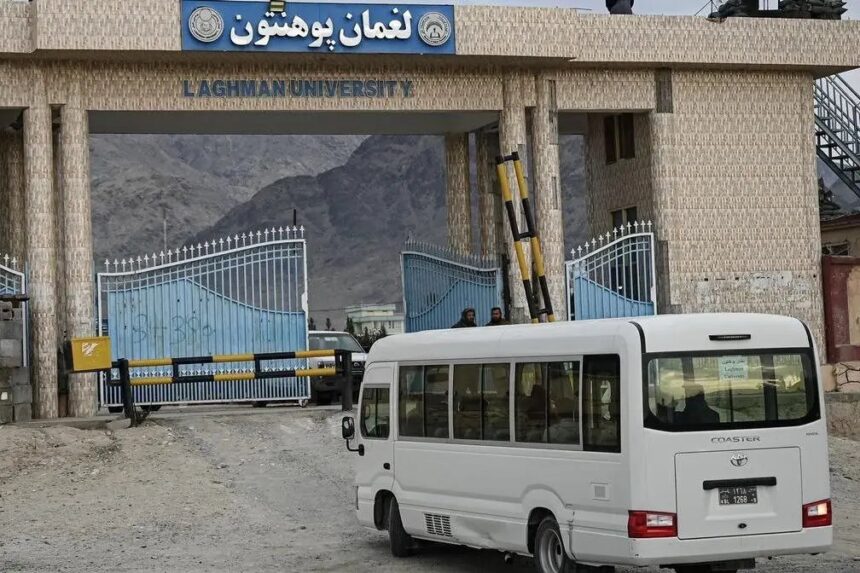RASC News Agency: In a further escalation of ideological consolidation, the Taliban’s Ministry of Higher Education has removed six faculty members from the departments of Islamic Sciences and Religious Culture at universities in Nangarhar, Laghman, and Kunar provinces. The dismissals were made on the grounds of alleged “inclination toward Wahhabi thought” a move that underscores the Taliban’s intensifying efforts to impose doctrinal uniformity within the country’s academic and religious institutions. According to informed sources, the measure is part of a broader campaign to purge Afghanistan’s educational infrastructure of Salafi and Wahhabi influences ideological currents that the Taliban regard as threatening to their own religious orthodoxy and monopolization of theological discourse.
In an official statement, the Ministry of Higher Education claimed the decision followed internal assessments aimed at “protecting the integrity of religious education” and preventing what it described as the “harmful impact” of heterodox ideologies on the moral development of students. Yet, the Ministry has thus far failed to disclose any names, details of the investigation, or the criteria used to justify the dismissals raising serious questions about transparency, accountability, and academic due process. This move comes amid growing internal unease within the Taliban’s ranks. Over the past several months, conservative elements within the regime have voiced concern over the perceived rise of Wahhabi influence in certain academic circles viewing the movement, with its theological roots in Saudi Arabia and distinct doctrinal differences from the Taliban’s Deobandi framework, as a rival school of thought and a potential ideological threat.
Critics argue that such dismissals represent a dangerous step toward the intellectual and theological sterilization of Afghanistan’s academic spaces. By silencing divergent interpretations and restricting religious scholarship to a single approved narrative, the Taliban risk extinguishing any remnants of academic pluralism within Afghanistani higher education. Observers warn that this form of ideological cleansing may also contribute to a broader climate of fear and self-censorship among educators, students, and scholars. With no independent oversight, those accused of harboring nonconforming views are left defenseless in the face of opaque accusations and politically motivated reprisals.
While the Taliban continue to assert that these measures are intended to preserve “Islamic principles and national unity,” the broader implications suggest a systematic effort to reshape the country’s educational institutions into rigid extensions of the regime’s religious doctrine. This development not only threatens to further isolate Afghanistan from global academic norms but also serves as a stark warning of how the Taliban’s governance continues to conflate ideological control with institutional authority leaving little room for intellectual freedom or theological diversity.






